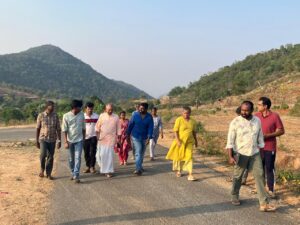
Dear Je,
In today’s environment, virtual learning has become unavoidable. However, you have always been opposed to it. Today, there are a plethora of classes, that happen online all over the world. I myself have attended a few of them. Why should we avoid them?
Anandraj
Dear Anandraj,
I am not against online learning. It is well suited for various types of education. It is sufficient for furthering professional learning, for training in personal skills such as pronunciation, for information-oriented learning, and more.
What about the arts? If one has learnt privately from a teacher, online classes can serve to make everyday progress with continued guidance from him/her.
However, learning dense and nuanced subjects such as philosophy, virtually, is bound to be prone to errors. Philosophy has a google-map-like density. Widen it, and it can be as expansive as the world. An inch of error on the map can lead to a misstep worth thousands of miles in real life. Therefore, direct, face-to-face learning is best.
When it comes meditation and the like, it is necessary to have a teacher in front of us. The teacher is not a trainer, he is a guru. His personality is crucial. It is important for him to know us, and us him. For this to happen, direct contact is indispensable. Once such a deep connection is formed between the teacher and student, meeting online thereafter can be beneficial.
I would also say that online education is of no help in making that first breakthrough in a new domain of study. Direct learning is what is needed, for the reason that we know nothing about the field. Consequently, we tend to be lackadaisical about it. The detached nature of online education multiplies this indifference of ours. Once we imbibe a superficial understanding of things, we start believing that we’ve learnt it all. We acquire a false sense of confidence. Whereas, the inspiration gained from direct instruction forges a deep opening within us, and leads us further in. It then becomes a lifelong journey.
In summary, wherever a teacher is indispensable, direct instruction is most suitable. Wherever a guru is required, direct instruction together with a gurukula system of learning which involves cohabitation with the guru, is the only suitable way.
Why do I reiterate this? Because everything I have learnt I received directly from my teachers. It was their personalities that taught me even more. ‘Education’ is something that is primarily passed on through the act of ‘being near.’ That, in fact, is the very meaning of the word Upanishad.
Jeyamohan
Translated by Priyamvada Ramkumar












